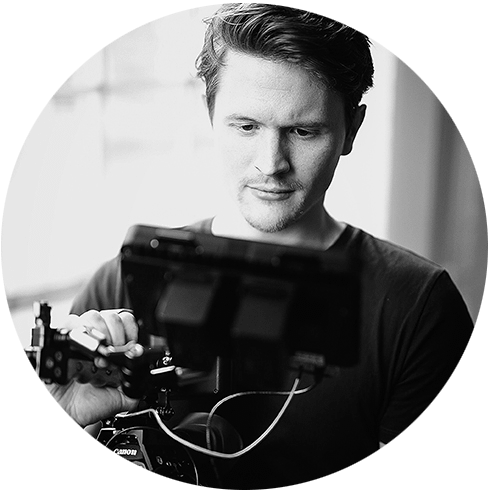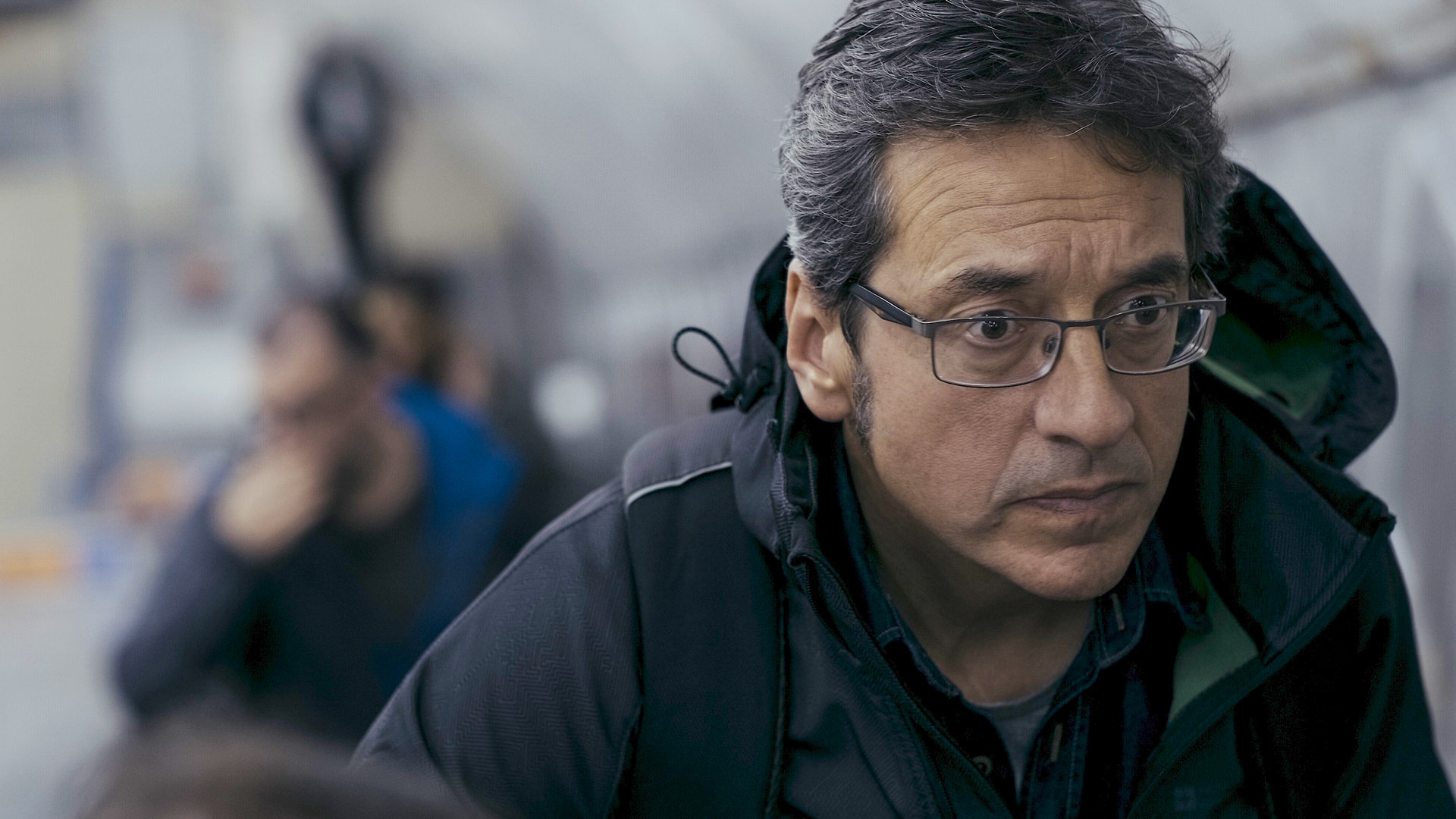Monbiot: A We Animals Media Short Film by Alex Lockwood

Alex Lockwood is a passionate documentary and narrative filmmaker with a focus on issues of ethics. Alex recently received a BAFTA win for his documentary 73 Cows which was a no budget short film. “It’s hugely important to me that I work on the right kind of project. Ultimately, films have a huge impact on the world, and the idea that through film I myself could make an impact is the reason I make films.”
Journalist and author George Monbiot, or “Gorgeous George” as he’s affectionately called in Britain by his legions of fans, stands out. His writing is infused with deep ecological and political knowledge, and he doesn’t shy away from urgent calls to action to anyone who will listen. George is also an activist and in recent years has aligned himself strongly with veganism as an ethical imperative. He’s a charismatic and influential character, and We Animals Media felt compelled to work with him on our mutual goals of raising awareness for animal advocacy and our current climate crisis. Even better, we worked with George Monbiot alongside BAFTA award-winning filmmaker and WAM contributor Alex Lockwood (Lockwood Film), whom we knew would create a short film with us and George that would beautifully convey our messages and concerns…and it turned out that one way of doing that was to make a film about George himself.
Monbiot: Arresting The Truth is a powerful film that follows George as he sets out deliberately to get arrested to draw attention to governmental inaction over climate change. The film explores his story, his motivations and why this unlikely hero is putting himself on the frontline of activism.
We sat down with Alex to learn about his creative filmmaking process, his desire to tell this particular story and his hopes for the film.
What inspired you to tell this story?
George Monbiot has spent his entire life fighting against the systems that enable environmental destruction and other political injustices. I really wanted to make a film that would both explore George’s drive and challenge the thinking process behind his sometimes controversial forms of activism. As a director, I always look to explore issues of ethics, and I feel that one of the best ways to do this is to create films which are character-focused. On a more personal level, my dad was a big believer that George was one of the few journalists he could really trust. If he were still around today he’d like that I’m directing a film based on George.

On a practical level, filming this one was a lot of fun, but also really challenging. We spent a lot of time filming at the climate protests in London, in particular we filmed George’s arrest. This drew a lot of attention from the press which meant that trying to get the shots we needed was chaotic. There was lots of running around trying to get ahead of the action. John, who is the film’s sound operator, needed to get a deep tissue massage after the protest shoots were done! At a more creative level I always enjoy trying to slowly get to grips with a contributor’s thought processes. As filming goes on and you spend more time with a contributor, they let you in more and more to their world and you get to understand them on a deeper level.

How do you hope the film inspires others?
There are many themes addressed within the film, but the main through-line is the idea that we still have the power to change the world for the better. I hope that people watch the film and feel a sense of hope that things could still get better and that some, not all, of the issues we’re facing could be resolved.

Why do you feel George Monbiot is such an important voice in the climate conversation?
George has a real gift for communicating big ideas and concepts in a way that really draws people in, so his voice is so important right now in terms of trying to make sure that climate issues stay embedded within public consciousness. He’s been talking and writing about climate change and the environment long before it became mainstream or dare I say it, ‘popular’ to do so. His voice comes from a place of deep personal anguish and frustration at what people are doing to the living world. He recognises that he comes from a position of privilege and that that position has helped him to gain a platform from which he can express his views and be heard. There aren’t many who come from a similar position who use their voices for good rather than for personal gain.

 Alex Lockwood is a passionate documentary and narrative filmmaker with a focus on issues of ethics. Alex recently received a BAFTA win for his documentary 73 Cows which was a no budget short film. “It’s hugely important to me that I work on the right kind of project. Ultimately, films have a huge impact on the world, and the idea that through film I myself could make an impact is the reason I make films.”
Alex Lockwood is a passionate documentary and narrative filmmaker with a focus on issues of ethics. Alex recently received a BAFTA win for his documentary 73 Cows which was a no budget short film. “It’s hugely important to me that I work on the right kind of project. Ultimately, films have a huge impact on the world, and the idea that through film I myself could make an impact is the reason I make films.”

To view images and video related to this story, please visit our Animal Rebellion Extinction Rebellion gallery on the We Animals Archive.
More like this from We Animals Media:
Rebellion: The Need to be Heard
by Jo-Anne McArthur | Dec 11, 2019
We Animals Media Welcomes Filmmaker Alex Lockwood
by Alex Lockwood | Sep 2, 2019
Green New Deal: A Just Transition for Animals
by J.K. Hafthorsson | Dec 20, 2019



